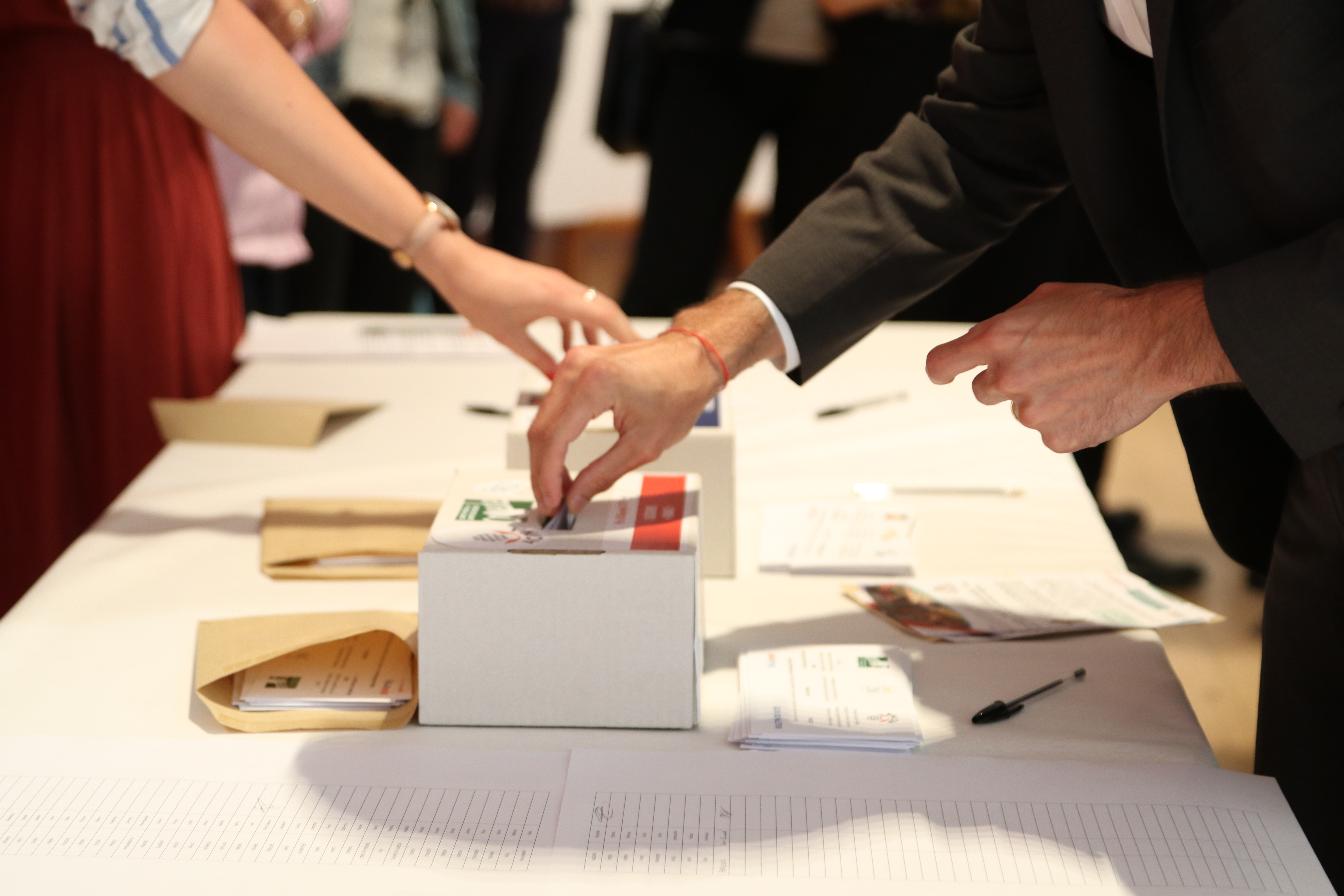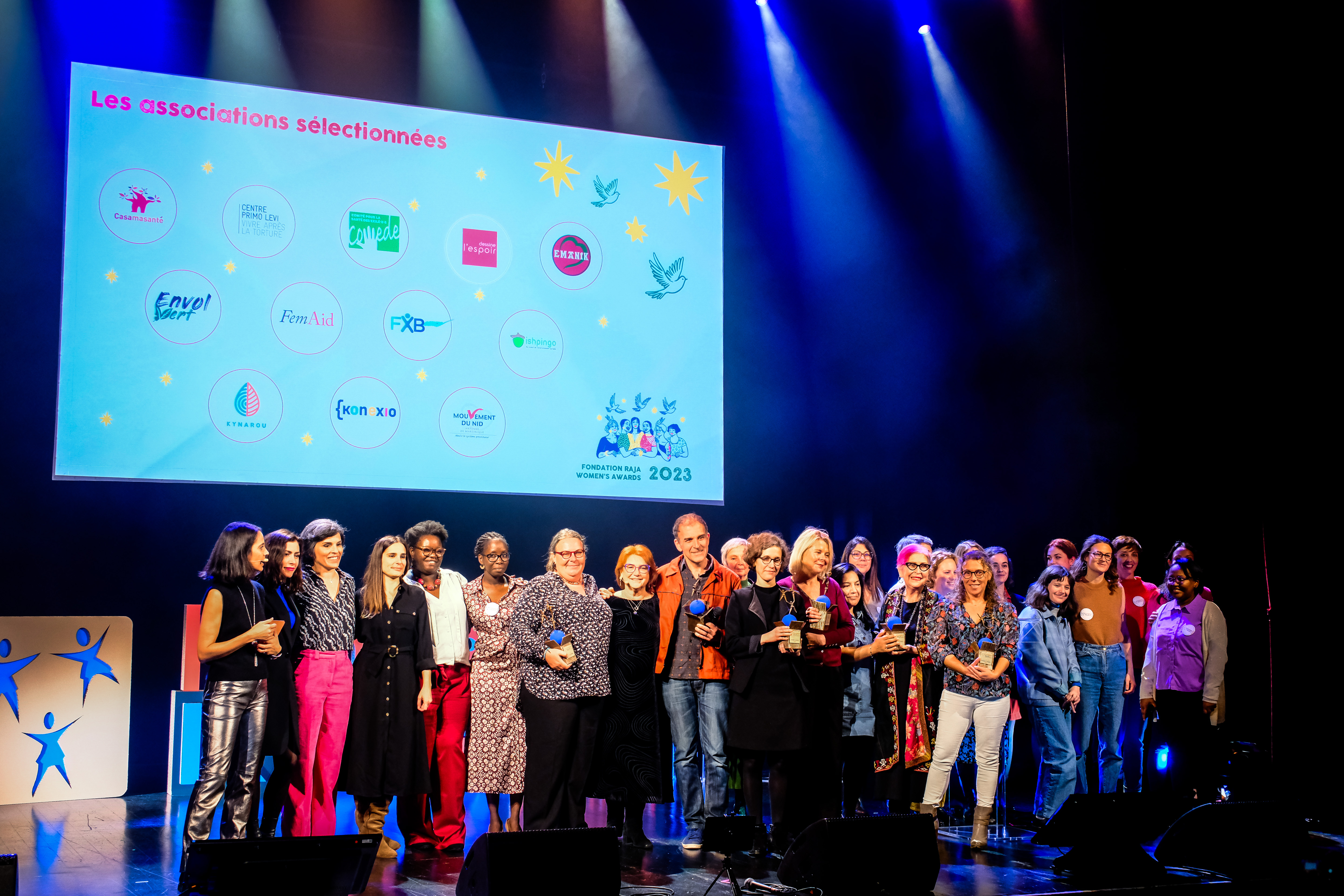Interview with Fatou Baldeh: survivor and activist against female genital mutilation (FGM)
At the age of 8, Fatou Baldeh MBE was subjected to female genital mutilation (FGM). After years of activism in the United Kingdom, for which she was honored as a Member of the British Empire (MBE), she returned to The Gambia to establish the organization Women in Liberation & Leadership (WILL). Since 2018, WILL has been working to end all forms of violence against women and girls, particularly FGM. In 2024, Fatou Baldeh received the 2024 International Women’s Rights Award at the Geneva Summit for Human Rights and Democracy.
6 February 2025
RAJA-Danièle Marcovici Foundation (FRDM): Fatou, can you explain what “female genital mutilation” or “FGM” is and why it is practiced?
Fatou Baldeh (FB): I am truly happy to have this conversation because, as you know, we have received support from the RAJA-Danièle Marcovici Foundation in The Gambia, and this project has had a tremendous impact in trying to uphold the ban on FGM here. I am very grateful and would like to thank you once again before we begin.
“I am a survivor of female genital mutilation.”
FGM, or female genital mutilation, is defined by the World Health Organization (WHO) as the partial or total removal of the external female genitalia for non-medical reasons.
The WHO has identified different types of FGM:
- Type 1: The total removal of the external female genitalia.
- Type 2: The removal of the clitoris and the labia (both external and, in some cases, all internal and external labia).
- Type 3: The sewing together of the female genitalia (sometimes with the removal of the clitoris), leaving only a small opening for urine and menstruation.
- Type 4: Any other procedure performed on female genitalia for non-medical reasons.
In some countries, instead of cutting, the labia are stretched from a young age. This is known as elongation.
FRDM: What are the consequences of these practices for girls and women? Specifically in The Gambia, where 75% of girls and women aged 15 to 49 have undergone some form of FGM, according to UNFPA?
FB: FGM causes both short- and long-term complications. In The Gambia, older women use sharp objects like knives, scissors, or razor blades to cut the genitalia.
One major issue is that most women performing FGM are not trained in anatomy. They may cut indiscriminately, leading to severe bleeding, which can result in death. There is also a high risk of infection since no medication is provided after the procedure. Many girls develop infections as a result. Additionally, due to the pain, they may hold their urine, further worsening infections.
The tools used for cutting are often shared among multiple girls, increasing the risk of transmitting diseases like HIV. Long-term complications include severe menstrual pain and recurrent infections, especially for women who have undergone Type 3 FGM, as menstrual blood cannot flow properly. Sexuality is also affected, which is one of the intended outcomes of FGM. Moreover, during pregnancy and childbirth, many complications arise, including prolonged labor.
The consequences are not only physical but also psychological. FGM is a deeply traumatic experience. Later, during sexual relations, it remains a painful ordeal, and many women develop post-traumatic stress disorder. It is important to note that the effects vary depending on the type of FGM performed.
FRDM: Who performs FGM on girls? And why?
FB: The irony of FGM is that it is usually performed by women. In The Gambia, this practice is so normalized that women grow up believing it is necessary for cleanliness and purity, as well as a prerequisite for marriage. Many also believe it is a religious obligation, which is false.
One explanation is that Gambian women, having very few societal responsibilities, cling to the control they exert through FGM. Moreover, they rarely have the opportunity to discuss or learn about the health complications they endure. Finally, FGM is seen as a rite of passage passed down from generation to generation: my grandmother did it, my mother did it, so I must do it too. Therefore, FGM is deeply ingrained in Gambian society.
FRDM: One of the United Nations’ Sustainable Development Goals is to eliminate FGM by 2030. However, in 2024, over 230 million girls and women have undergone FGM, a 15% increase from eight years ago, according to UNICEF data. Why do you think progress toward this goal is so slow?
FB: FGM is an ancestral practice rooted in social and cultural norms. It is a cultural legacy.
I believe that to make progress, we must amplify the voices of survivors. This fight must be led by African women because many perceive the ban on FGM as a Western imposition. I am an FGM survivor, and I learned about its consequences while studying in the UK. This knowledge allowed me to stop the practice in my family. Many young people, both men and women, are also taking action.
It is also crucial to involve men and boys in the fight against FGM, as they play a key role. Many mothers practice FGM, believing their daughters will not be able to marry otherwise. Therefore, it is important for men to speak out and reject this mutilation.
Reproductive rights are regressing globally, but FGM disproportionately affects African girls. Yet, the UN struggles to prioritize it, fearing it might offend local traditions. But we are talking about young girls being cut without anesthesia. Female genital mutilation is a severe human rights violation and must be treated as such.
FRDM: What needs to change? What is missing in the fight to eradicate this practice, particularly in The Gambia?
FB: We need resources, exchanges, and knowledge-sharing with countries like Kenya and Tanzania, where FGM prevalence has drastically decreased. What are they doing better than us? What can we learn from them? But due to a lack of resources, we cannot travel to Kenya to learn, nor invite experts here to share their knowledge. We need partnerships and exchange programs at colleges and universities to connect with countries that provide more comprehensive sexual education. But currently, we lack the capacity and funding.
We must also help women who perform FGM find alternative sources of income. Many continue this practice to provide for their families. Additionally, fighting early pregnancies is essential because many women fear their daughters will become pregnant if they are not cut.
FGM is not an isolated issue. To me, it is the most extreme manifestation of gender inequality and violence against women and girls.
Why do our societies value women so little that they subject them to such practices? Why do they believe a girl must have her genitals cut to become a woman?
We need to have these conversations and empower women and girls to understand their bodies, their rights, and how to protect themselves.
FRDM: Your organization, WILL, has a Gender Justice Program to address violence against women and girls. Can you tell us more about it?
FB: We are a survivor-led organization fighting all forms of violence against women and girls, with a strong focus on sexual and gender-based violence, including FGM. We work with communities to raise awareness and break the taboo surrounding FGM.
We educate healthcare professionals on how FGM affects women, particularly during pregnancy and childbirth, so they can provide proper support.
We also engage religious leaders to dispel the false belief that FGM is a religious obligation and advocate for more women to enter Parliament and participate in decision-making.
Finally, FGM is not irreversible. If a girl is spared, an entire generation is saved.



